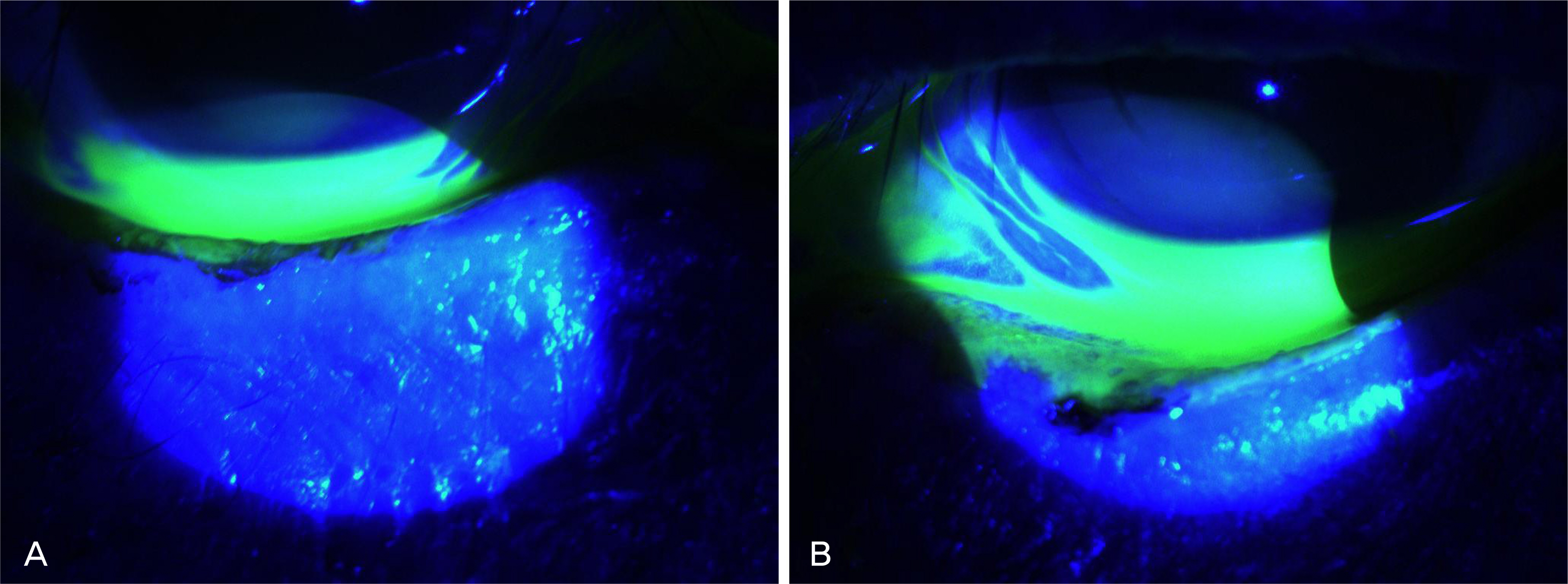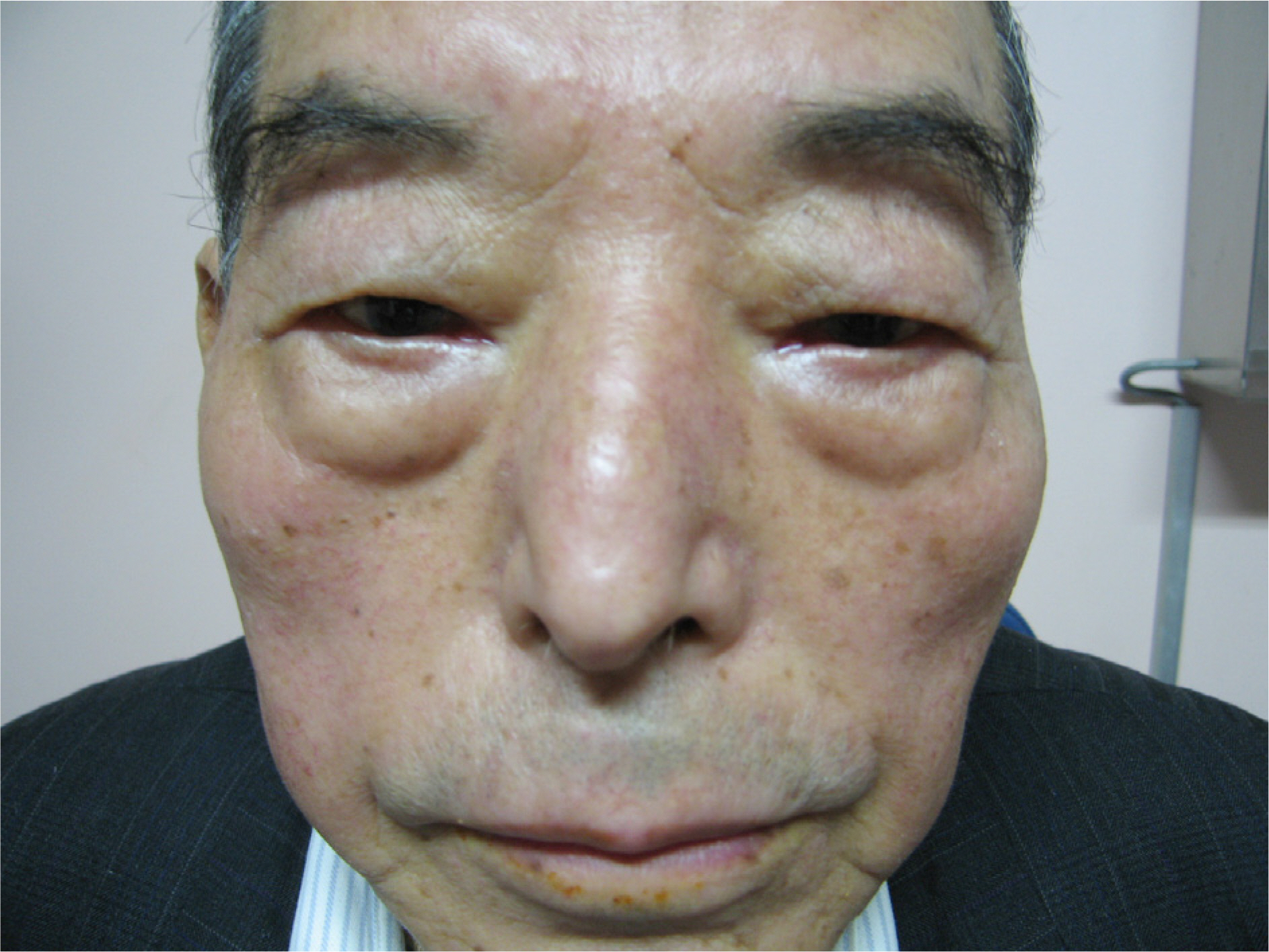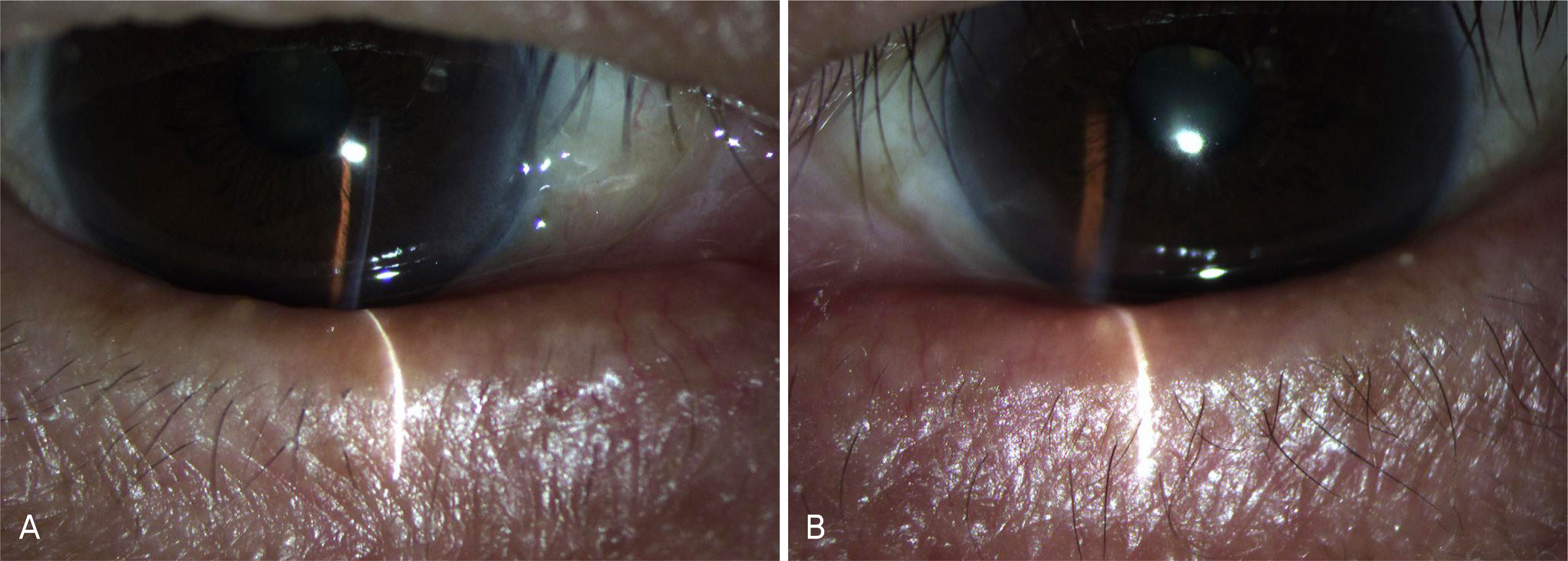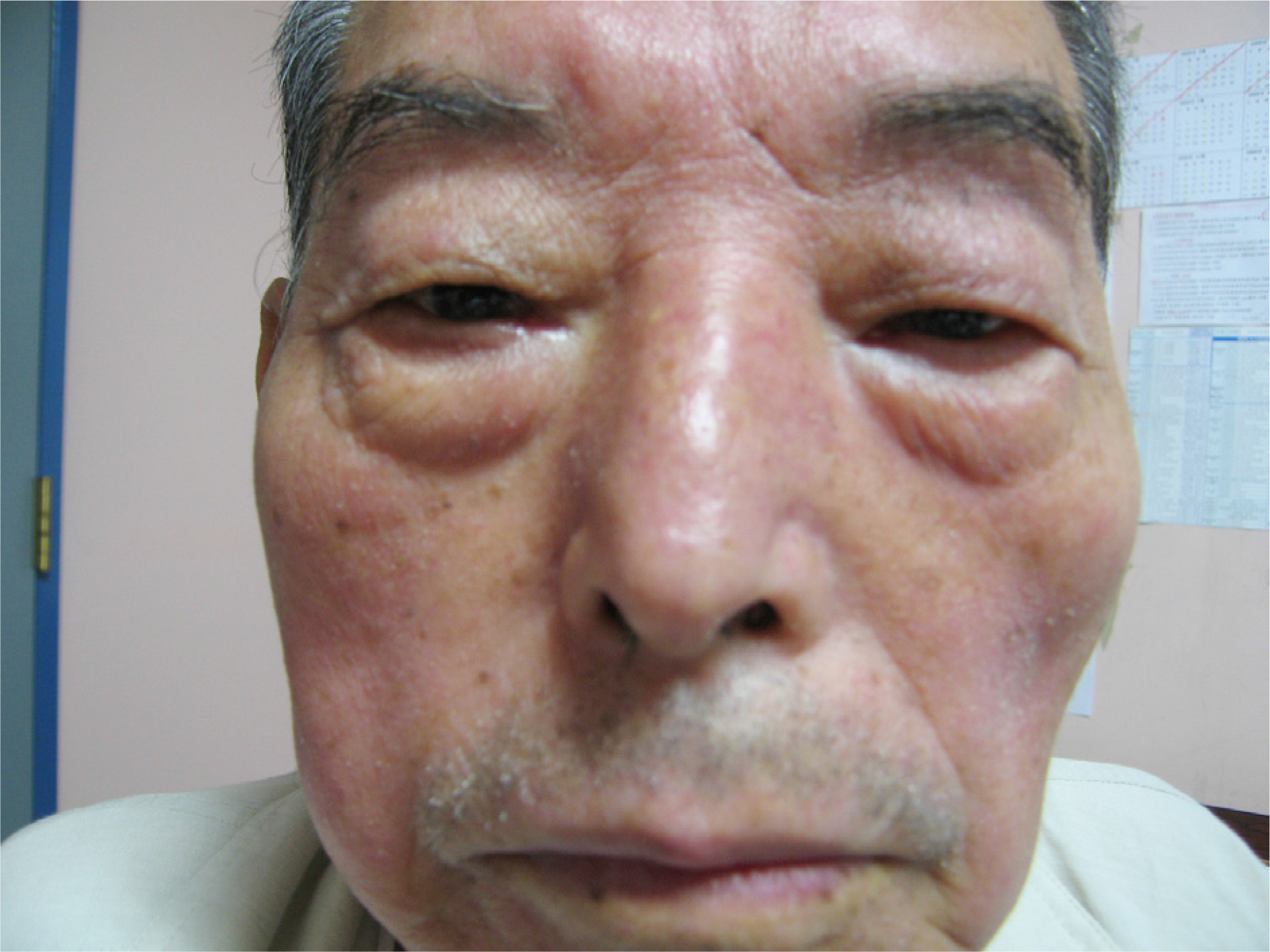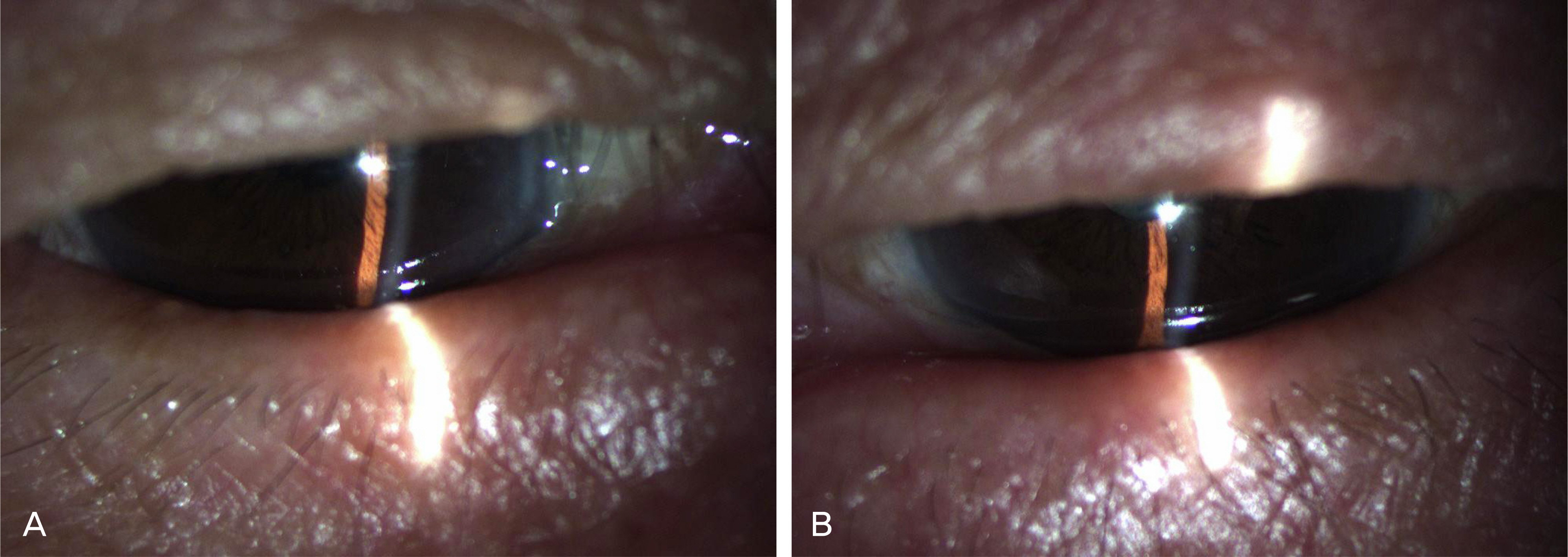J Korean Ophthalmol Soc.
2010 Jan;51(1):126-129.
A Case of Acute Idiopathic Bilateral Lower lid Ectropion
- Affiliations
-
- 1Department of Ophthalmology, Daegu Fatima Hospital, Daegu, Korea. djoph2540@yahoo.co.kr
Abstract
- Introduction
Ectropion is an eversion of the eyelid due to various causes, and it mainly develops in the lower lid. Usually it shows a slow progression, and it is classified as involutional, cicatricial, paralytic and congenital. Acute idiopathic bilateral lower lid ectropion is very rare; few cases have been reported worldwide, and none have been seen in Korea.
CASE SUMMARY
A 79-year-old male patient visited our department with a six-day history of epiphora and lower lid eversion in both eyes. On slit-lamp examination, lower lid ectropion was present in both eyes, and mild corneal punctate epithelial erosion was also observed. Two weeks after conservative treatment, the lower lid eversion disappeared and the lower lid returned to its original position. No changes were observed three months after treatment. We report a case of acute idiopathic bilateral lower lid ectropion with a literature review.
Keyword
Figure
Reference
-
References
1. Piskiniene R. Eyelid malposition: lower lid entropion and aberrations. Medicina (Kaunas). 2006; 42:881–4.2. Maden A, Soylev MF, Ozkan SB. Acute onset transient ectropion associated with corneal ulcer. Int Ophthalmol. 1998; 21:323–4.3. Cheung D, Sandramouli S. Consecutive ectropion after the Weis procedure. Ophthal Plast Reconstr Surg. 2004; 20:64–8.4. Caviggioli F, Klinger F, Villani F, et al. Correction of cicatricial ectropion by autologous fat graft. Aesthetic Plast Surg. 2008; 32:555–7.
Article5. Gupta B, Parmar B, Raina J, Chawla JS. Acute idiopathic bilateral lower lid ectropion. Indian J Ophthalmol. 2006; 54:212–4.
Article6. Vallabhanath P, Carter SR. Ectropion and entropion. Curr Opin Ophthalmol. 2000; 11:345–51.
Article7. Liebau J, Schulz A, Arens A, et al. Management of lower lid aberrations. Dermatol Surg. 2006; 32:1050–7.8. Vick VL, Holds JB, Hartstein ME, Massry GG. Tarsal strip aberrations for the correction of tearing. Ophthal Plast Reconstr Surg. 2004; 20:37–9.9. Carter SR, Chang J, Aguilar GL, et al. Involutional entropion and ectropion of the asian lower eyelid. Ophthal Plast Reconstr Surg. 2000; 16:45–9.
Article10. de Groot AC, Poelhuis JW. Ectropion caused by periocular aberrations. J Am Acad Dermatol. 2001; 44:385–6.11. Hintschich C. Correction of entropion and ectropion. Dev Ophthalmol. 2008; 41:85–102.
Article12. Uthoff D, Gorney M, Teichmann C. Cicatricial ectropion in ichthyosis: A novel approach to treatment. Ophthal Plast Reconstr Surg. 1994; 10:92–5.13. Xu JH, Tan WQ, Yao JM. Bipedicle orbicularis oculi flap in the reconstruction of the lower eyelid ectropion. Aesthetic Plast Surg. 2007; 31:161–6.
Article14. Shah-Desai S, Collin R. Role of the lower lid retractors in involutional ectropion repair. Orbit. 2001; 20:81–6.
Article15. Savino PJ, Sergott RC, Bosley TM, Schatz NJ. Hemifacial spasm treated with botulinum A toxin injection. Arch Ophthalmol. 1985; 103:1305–6.
Article16. Koh S, Hosohata J, Tano Y. Bilateral upper eyelid ectropion associated with belpharospasm. Br J Ophthalmol. 2006; 90:1437–8.17. Bernardino CR. Correction of ectropion in facial paralysis. Plast Reconstr Surg. 2006; 117:1351–2.
Article18. Carter SR. Eyelid disorders: Diagnosis and management. Am Fam Physician. 1998; 6:1–8.
- Full Text Links
- Actions
-
Cited
- CITED
-
- Close
- Share
- Similar articles
-
- Clinical Experience of Lazy-T Operation
- Reappraisal of the lateral tarsal strip in the treatment of paralytic ectropion
- Reevaluation of Medial tarsorrhaphy in the management of paralytic ectropion
- Management of the paralyzed ectropion by implanting the Alloderm(R)
- Prevention of Lower Eyelid Complications Caused by a Subciliary Approach : Temporary Lower Eyelid Suspension


